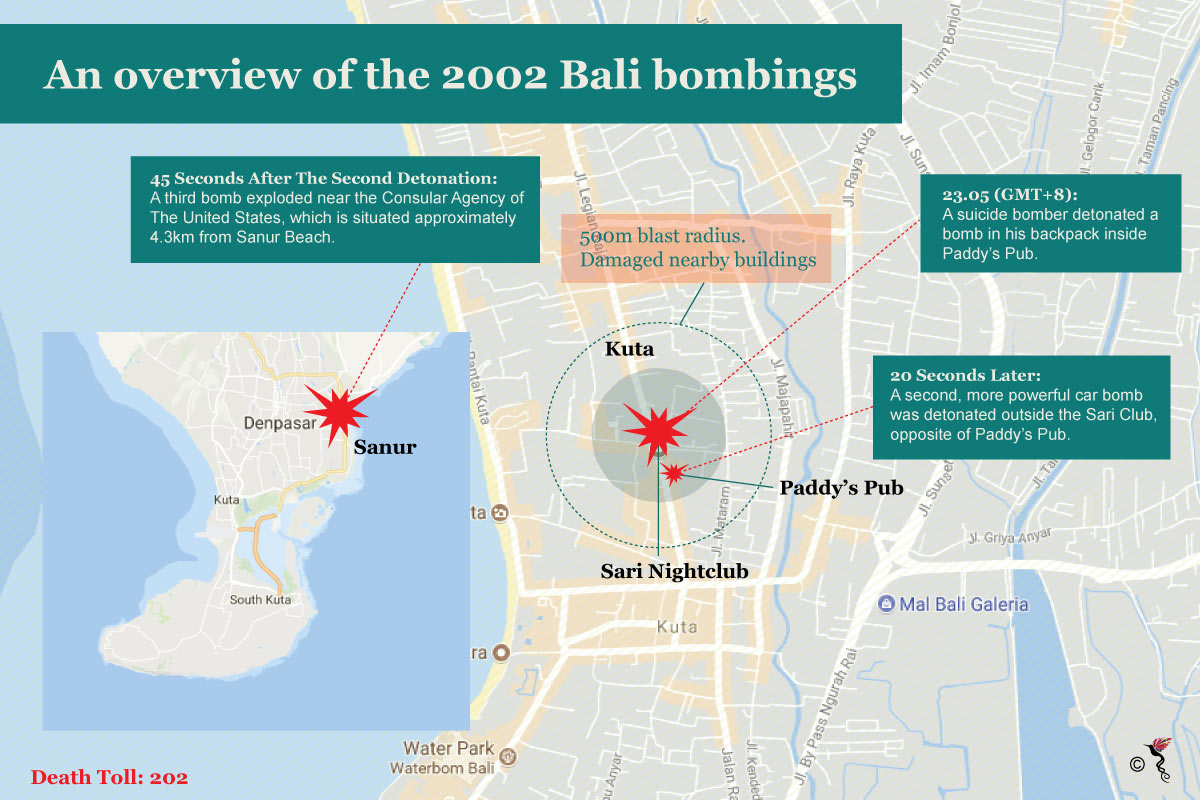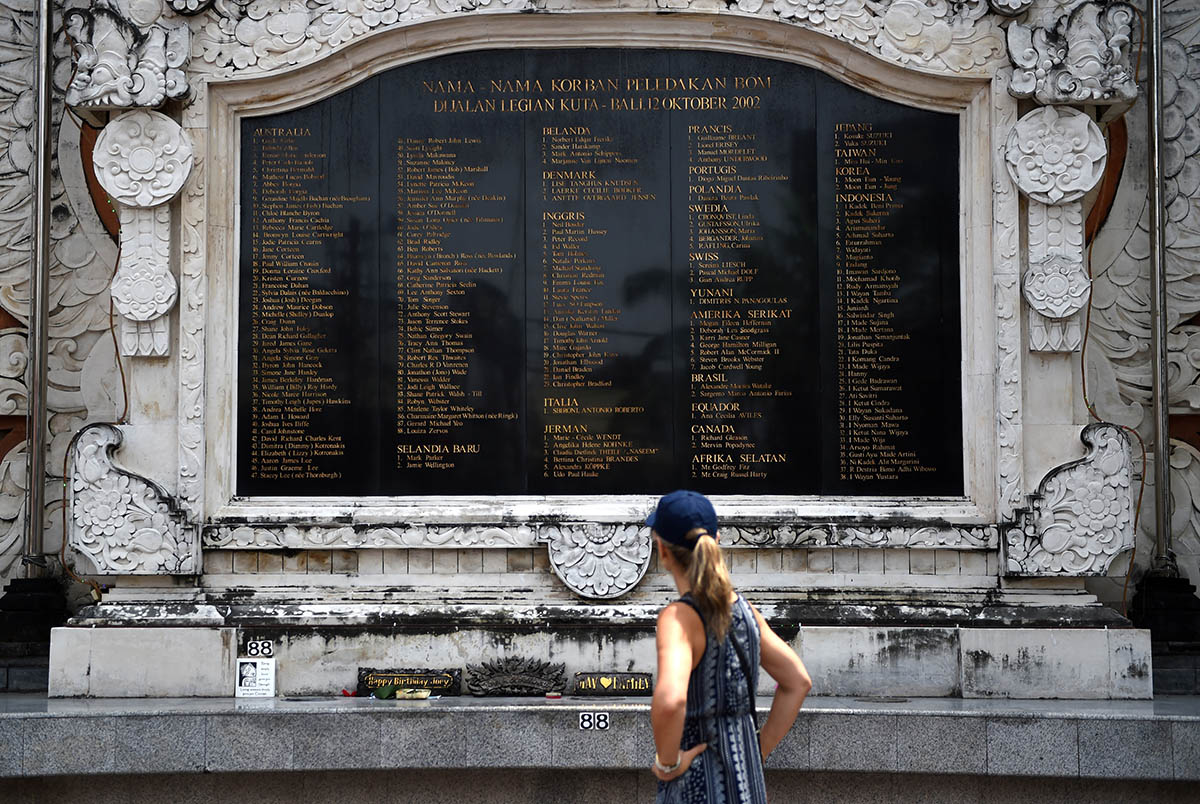Today marks the 15th anniversary of the deadly 2002 Bali bombings. On October 12, 2002, tragedy hit Indonesia when three bombs devastated the world-renowned tourist island of Bali. The attack took the lives of 202 individuals from 21 countries across the world.
The incident took place only one year after the 911 attack in the US. While the attack shook the world, it has also scarred the life of many survivors, especially those who have lost love ones in the incident.
Therese Fox, an Australian mother of two, survived excruciating burns sustained to 85 percent of her body. In her interview with the Geelong Advertiser, she recounted the pain she went through as she spent a whole year under intense treatment in her path to recovery.
“Obviously the burns impacted me – they restricted my life for a long time,” she said. Therese added, “if I hadn’t had my kids – I would be dead. They were very much the driving force behind my survival.”

An overview of the deadly 2002 Bali bombings.
The attack was well-coordinated. The BBC reported that Riduan Isamuddin, also known as Hambali, was believed to have ordered a new strategy of hitting soft targets, such as nightclubs and bars rather than high-profile sites like foreign embassies at a secret meeting of operatives from Jemaah Islamiah – a Southeast Asian militant network. In August 2002, Bali was chosen as the target of the attack.
The first bomb was detonated by a suicide bomber inside the Paddy's Pub situated in the famous nightlife spot along "Jalan Legian" – the main road in Kuta. Soon after, a second and more powerful bomb went off outside the Sari Club, opposite of the first target. Many victims who were fleeing the first attack were caught and killed in the second detonation, which had a 500-metre blast radius. The third bomb was detonated near the Consular Agency of The United States, but no one was injured or killed.
Australia suffered the highest number of casualties – 88 Australian citizens were killed. Fifteen years later, around 200 family, friends, religious leaders and government officials are expected to gather at the Bali Memorial at Dolphins Point in Sydney, Australia later today to pay respect to those who lost their lives in the 2002 Bali bombings.
Counter-terrorism and deradicalisation
Earlier this year, the 10 member states of ASEAN (Association of Southeast Asian Nations) have reaffirmed their commitment to counter the continuous rise of radicalisation and violent extremism in the region, which may lead to terrorism in all forms and manifestations.
During the 11th AMMTC (ASEAN Ministerial Meeting on Transnational Crime) held in Manila, the Philippines, the regional bloc has adopted the Manila Declaration. Under the declaration, ASEAN member states will place a strong emphasis on the aspects of deradicalisation through rehabilitation and reintegration programmes as part of comprehensive measures in countering terrorism aside from applying force or punitive measures.
